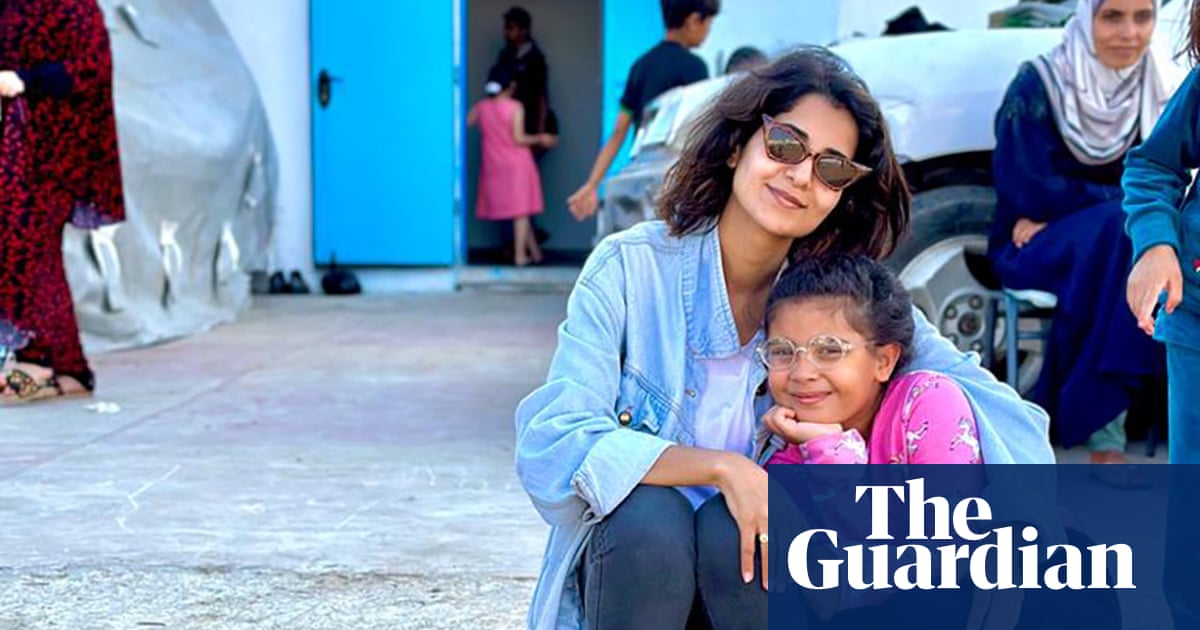
The documentary opens with shots of the devastation in Homs, where the families came from, making the point that out of the more than five million refugees from Syria’s civil war, only 21,000 have been accepted into the US, 372 of them in Baltimore
The idea began with Princess Firyal, a board member of the International Rescue Committee and a UNESCO goodwill ambassador
DUBAI: As the world marked World Refugee Day this week with the grim news that a record 65.6 million people around the world were forcibly displaced by the end of 2016, a new documentary aims to bring home the issue by following four Syrian families trying to settle in the US.
“This Is Home: A Refugee Story,” which streams online Friday on EPIX and won a Sundance Film Festival Audience Award this year, received some high-level help from Princess Firyal of Jordan, who told Arab News that it is important the issue stays at the top of people’s minds.
“It’s always been important: Every time is a good time, but now there seems to be no focus on the refugees,” said the princess, who served as the documentary’s executive producer. “Everyone is occupied with something else. And that’s exactly the story of the refugees: One day they’re on the front page and the next they’re forgotten.”
The idea began with Princess Firyal, a board member of the International Rescue Committee and a UNESCO goodwill ambassador.
“We help the refugees in Jordan the best we can … but I thought maybe we should reach them in another way.”
So she turned to her goddaughter, the American filmmaker Alexandra Shiva. “She’s a lovely and wonderful director and she proved it,” said the princess. “I thought ‘Hey, I have an in-house situation here,’ so I called her and said, ‘This is what I want to do’… She was convinced very quickly that this is a worthy cause so we went ahead and we did it and the rest is history.”
Alexandra Shiva
The documentary opens with shots of the devastation in Homs, where the families came from, making the point that out of the more than five million refugees from Syria’s civil war, only 21,000 have been accepted into the US, 372 of them in Baltimore.
“We did it to reach people, to reach people’s hearts, to maybe try to contribute our bit and educate the masses who don’t know anything about refugees, that they are people, just like us, just very unlucky,” Princess Firyal said.
Shiva’s crew followed the families who, with the help of the IRC’s Baltimore Resettlement Center, make their way through a dizzying list of new experiences, attending English classes, medical appointments, job interviews and group therapy sessions.
“For me, the most important thing is that the movie is from the bottom up, not the top down,” said the director. “You’re in people’s lives. It’s not all refugees. It’s four families. It’s very intimate. It feels small and yet big, I hope.”
It was a challenge to gain the trust of the families to get the intimate access that she did, Shiva said.
“Meeting people when they’re in the most traumatized, fraught period of their lives is never easy and then earning their trust and having them become comfortable with me, comfortable enough to really have the camera and the crew in their kitchens and in their living rooms and in their daily lives, was probably the biggest challenge, but it worked.”
With only eight months of assistance to get settled, it feels like the odds are stacked against the families, who are coping with what they have experienced in the war while going through culture shock in a country that often shows resistance to them. Most heartbreaking are the children, who process the same experiences on a simpler level.
“What if I’m being good in school but tell them I’m from Syria? What would they say? Will they be angry with me?” one of them wonders.
But it is heartening to see Americans in the Baltimore community reach out and befriend the families, something Princess Firyal hopes more people will think about
doing.
“Above all, we’d like to highlight that people should really make an effort to learn more about the crisis, and each one of us in some way can help,” she said.
“Nobody wants to leave their home. People are forced to leave their home. We coach them, we help them, but the crisis doesn’t go away just because we don’t read about it every day in the newspaper.”
“This Is Home” airs on EPIX on Friday at 9 p.m. ET.












